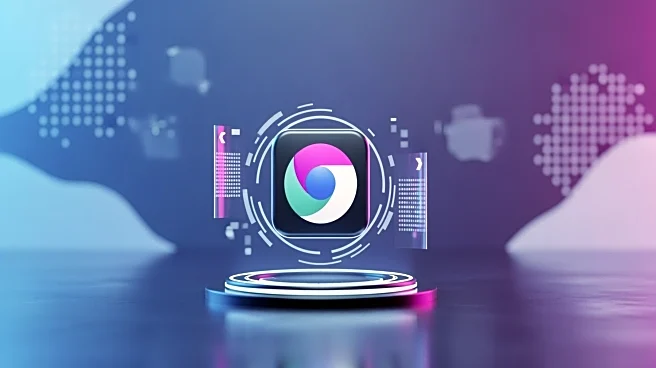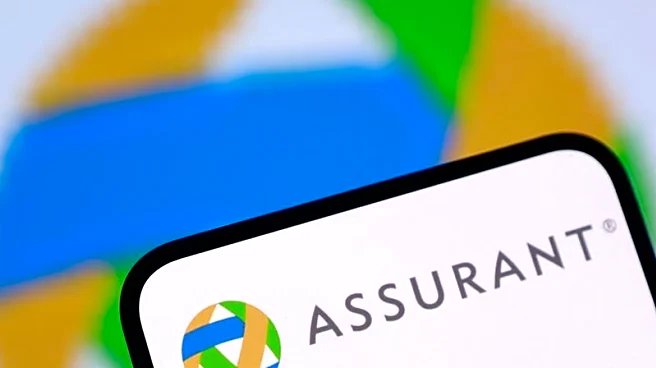What's Happening?
OpenAI has announced the launch of its new web browser, Atlas, which is designed to compete with Google Chrome. Atlas is powered by OpenAI's ChatGPT and aims to revolutionize internet usage by integrating AI capabilities directly into the browsing experience.
The browser introduces features such as an AI chatbot interface replacing the traditional URL search bar and an 'agent mode' that autonomously navigates the internet based on user history. Initially available for Apple's Mac computers, Atlas seeks to offer a more intuitive and task-oriented browsing experience.
Why It's Important?
The introduction of Atlas signifies a potential shift in how users interact with the internet, moving away from traditional browsing methods to AI-driven experiences. This development could impact the market share of established browsers like Google Chrome, which currently dominates with around 3 billion users. The integration of AI into browsers could enhance user efficiency but also raises concerns about privacy and the personalization of internet experiences. As AI continues to evolve, its role in everyday technology could redefine user expectations and industry standards.
What's Next?
Atlas's success will depend on its ability to attract users from established browsers and address concerns about AI's role in personal data usage. OpenAI may expand Atlas's availability to other platforms and continue to refine its AI capabilities. The broader tech industry will likely monitor Atlas's reception closely, as it could influence future browser innovations and the integration of AI in consumer technology.
Beyond the Headlines
The launch of Atlas also highlights ongoing debates about AI's accuracy and reliability. Recent studies have shown that AI responses can contain significant errors, which could undermine trust in AI-driven tools. As AI becomes more integrated into daily technology, ensuring its accuracy and ethical use will be crucial to maintaining public confidence.
















